THE APOLLO OF GAZA
Nicolas Wadimoff
2018
| 78 min
Selections and Awards
Official Selection Locarno Festival - Semaine de la critique 2018
Official SelectionDok Leipzig 2018
Official SelectionRIDM 2018
In 2013, an ancient statue of Apollo was found in the waters off Gaza—before disappearing under mysterious circumstances. Is it the work of forgers, or a gift from the gods to a Palestinian people desperately in need of hope? Soon the rumours start to swirl, while behind the scenes local and international players start jostling—some driven by historical preservation and others by purely commercial interests. Filmed in Gaza and Jerusalem, The Apollo of Gaza plays out like a mystery built around a national treasure that is the stuff of dreams.
The Apollo of Gaza is an engaging reflection on the passage of time and the fragility of civilizations, as well as a poetic and philosophical meditation that immerses us in the often-misunderstood realities of life in a place that continues to pay a heavy price for the seemingly endless Israeli-Palestinian conflict—a place where life doggedly carries on, resisting.
Like a meteor streaking across the sky, the statue of Apollo brings a moment of light and beauty to Gaza. Can it help restore dignity to a people, revealing a glorious history and fostering pride in a nation often misrepresented and demeaned?
It all started in August 2013, when a Gaza fisherman pulled a statue of Apollo out of the water. A bronze relic of antiquity, the statue was originally believed to date from 300–200 BCE. It became front-page news around the world—and then it disappeared, under mysterious circumstances.
Co-produced by Akka Films and the National Film Board of Canada and directed by Swiss filmmaker Nicolas Wadimoff, The Apollo of Gaza tries to uncover the secrets behind this stunning archaeological discovery. Filmed in Gaza and Jerusalem, the film plays out like a mystery—one full of unexpected plot twists, as Wadimoff tracks down those who saw the priceless statue or who have heard stories about it. Is it the work of forgers, or a gift from the gods to Palestinians desperately in need of hope? There are a lot of unknowns, but one thing is sure: the Apollo of Gaza soon becomes an object of speculation and greed, its very existence feeding the wildest rumours, and blurring the line between truth and lie, myth and reality.
What happened to the statue, whose historic value may be unparalleled? A war of attrition breaks out between those who have a purely commercial interest in the statue and others motivated by historical and artistic considerations, as officials and shadowy, powerful figures battle it out away from the spotlight.
Beyond the local political rivalries (particularly in Israel) and international concerns, The Apollo of Gaza is an engaging reflection on the passage of time and the cycles of history. It’s a history that has seen the birth, growth, and death of great civilizations, in a part of the world marked by the endless Israeli-Palestinian conflict, where the besieged Gaza strip continues to pay a heavy price.
The world has come to associate Gaza with media images of economic misery and war. But The Apollo of Gaza takes us to a less well-known Gaza, where life doggedly carries on, resisting. The statue of Apollo may not have blazed its way across the sky, but like a meteor it briefly left light and beauty in its wake, helping to restore a people’s dignity, awakening a sense of pride in their history—a history that has often been misrepresented and demeaned. “Anything forged in adversity will be strong,” says one of the participants in the film. As fleeting as it may have been, the sudden arrival of this work of art struck a chord in the troubled daily lives of Gazans, and had the remarkable effect of sparking a cultural resurgence. Will the statue ever come back? If it does, the bronze Apollo could be housed in a museum built with the help of international aid, helping to bring the forgotten territory back into the eye of the world’s nations.
While the film offers never-before-seen images of life in Gaza and introduces us to a range of people living in the territory, it also embraces much wider horizons. With lingering images of dream-like beaches, The Apollo of Gaza is also a political and philosophical meditation. In its own way, this archaeological discovery—and still unsolved mystery—has jump-started an interest in history in a place where it has often been neglected or even forgotten. For younger generations, the enigmatic Apollo of Gaza could serve as a link to the past, while paving the way to a brighter future. Just like entrepreneur and collector Jawdat N. Khoudary, who lovingly watches his plans come to fruition, director Nicolas Wadimoff’s film is an invitation to patience—the only constant in the hope that peace will one day return to this coastal strip abandoned by all. All except, it seems, Apollo: an unlikely messenger of the gods, who suddenly appeared in the sea.
Director's Note
When I learned about the discovery (and equally sudden disappearance) of the Apollo of Gaza, I immediately began pondering the broader implications of this astonishing find. For me, the quest for the Apollo was a way into the history of not just an entire region, but also of the men and women who continue to create that history to this very day.
Shot in Gaza and Jerusalem, The Apollo of Gaza plays out like an archaeological thriller. The film tracks down people who’d seen or heard about this highly coveted national treasure. Was it just the work of forgers, or a gift from the gods to a Palestinian people desperately in need of hope?
What became of this mysterious statue with its potentially immeasurable historical value?
An intense covert war was being fought over the statue, between those driven by purely commercial interests and those concerned with preservation and art, every official and unofficial power apparently locked in a backroom struggle. The Apollo of Gaza is partly a chronicle of these claims and local and international political rivalries. But it’s also a reflection on the passage of time and the cyclical nature of history. A history that, for centuries, has witnessed the birth, boom and bust of great civilizations in a part of the world currently plagued by conflict—in this case, the interminable Israeli-Palestinian conflict, for which the besieged Gaza Strip continues to pay a heavy price.
With international media spewing endless images of war and poverty in Gaza, I felt it was vital that The Apollo of Gaza focus instead on the region’s lesser-known side. Here, against all odds, life continues to thrive, undefeated. Like a meteor streaking across the sky, the statue of Apollo brings a moment of light and beauty to Gaza, helping to restore dignity to its people and waking a sense of national pride that’s often been trampled. “Adversity makes you stronger,” says one of the players. Indeed, fleeting though it may have been, the statue’s sudden appearance in the day-to-day torments of life on the Strip has unexpectedly helped spark a cultural revival.
In its own way, the enigmatic artwork breathes new life into a neglected, all-but-forgotten history. For younger generations, the Apollo of Gaza can bridge past and present as it points the way to a brighter future. Like entrepreneur and collector Jawadat N. Khudary, rapturously watching his flowers bloom, the film advocates patience: the sole guarantor of the peace that will surely one day blossom on these forsaken shores. A place abandoned by all except Apollo, the unlikely messenger of the gods, suddenly tossed up by the waves.
After taking a look at the region and its issues from a political standpoint (L’Accord, 2005), and then focussing on the men and women who live there (Aisheen – Still Alive in Gaza, 2010), I decided to take a more philosophical or even metaphysical approach in The Apollo of Gaza, asking about the gods and spirits who inhabit the region. In this sense, I like to see it as the final instalment of a trilogy. The Apollo of Gaza marks the culmination of a 15-year journey that began in 2003 and ended in 2018. Enough time, I hope, to not only fully explore the land, but to also map its political, psychological, cinematic and poetic landscapes.
Nicolas Wadimoff
June 2019
Trailer
Clips
Promotional Materials
Team
Nicolas Wadimoff
Director
Photo
Photo : Ufuk Emiroglu
Philippe Coeytaux
Producer (AKKA Films)
Photo
Photo : Karine Sudan
Colette Loumède
Executive Producer (NFB)
Photo
Photo : NFB
Images
Loading...
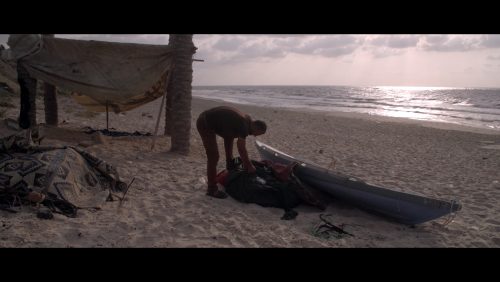
Download
Loading...
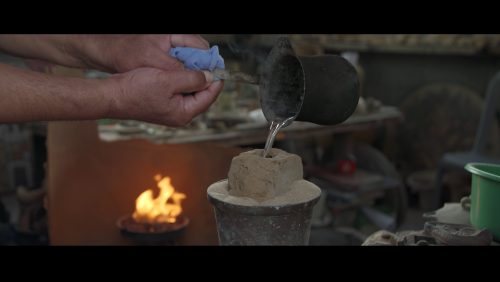
Download
Loading...
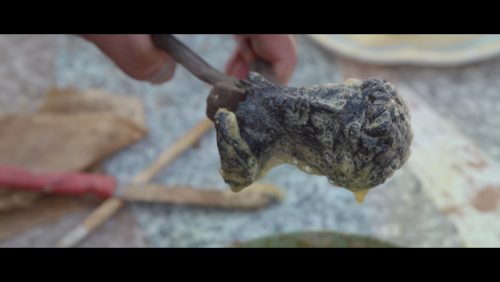
Download
Loading...
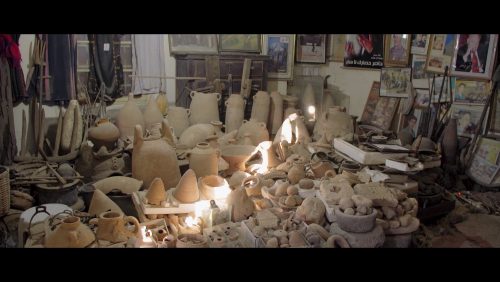
Download
Loading...
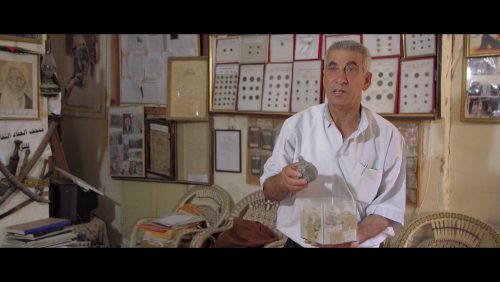
Download
Loading...
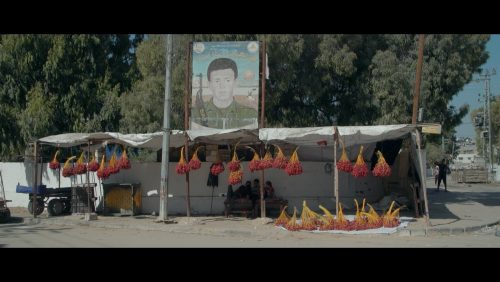
Download
Loading...
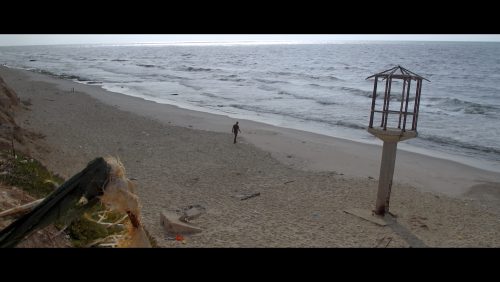
Download
Loading...
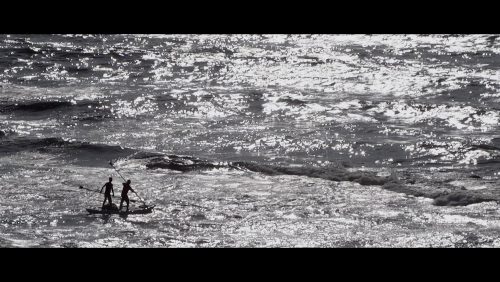
Download
Loading...
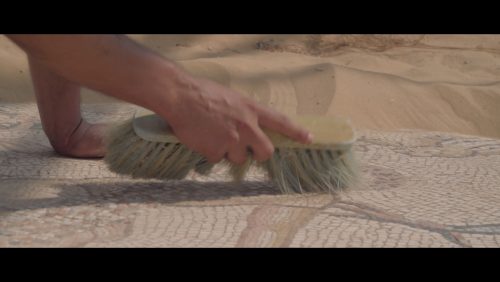
Download
Loading...
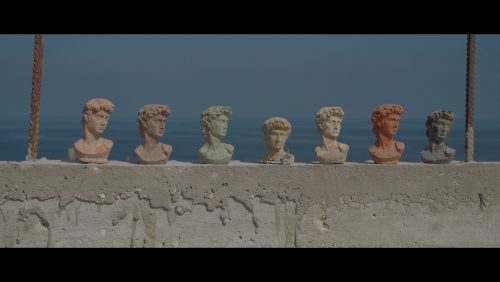
Download
Loading...
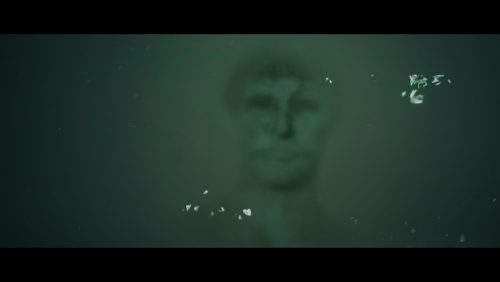
Download
Loading...
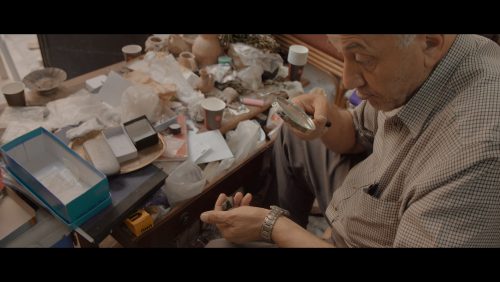
Download
Loading...
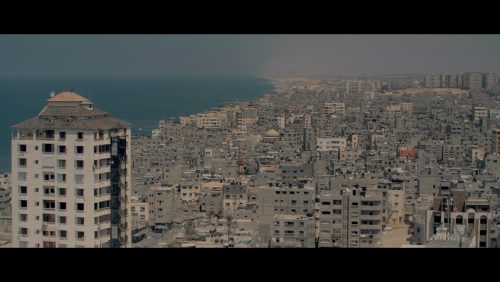
Download
Loading...
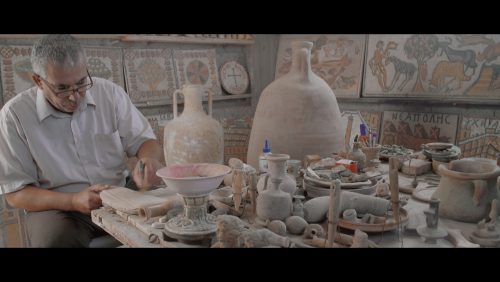
Download
Loading...
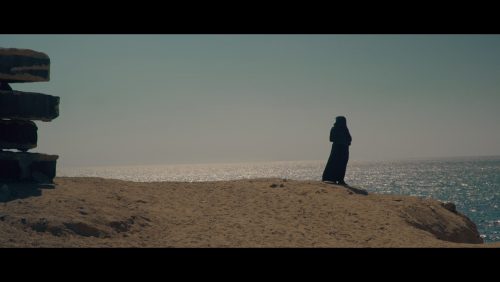
Download
Loading...
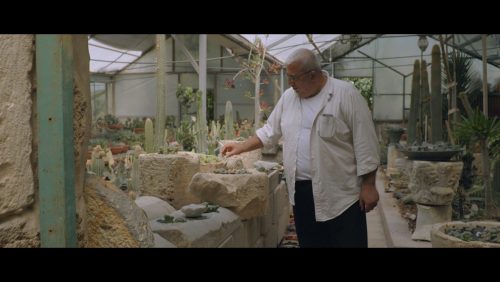
Download
Loading...
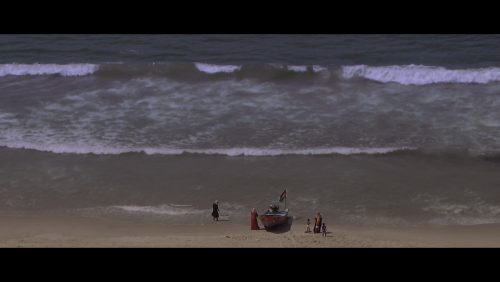
Download
Loading...
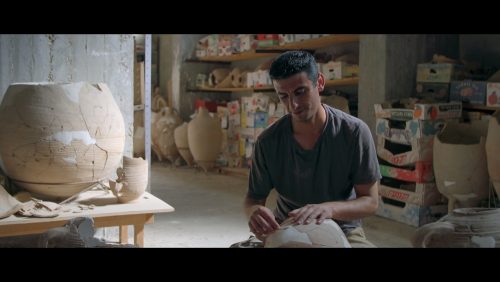
Download
Credits
A film by
NICOLAS WADIMOFF
In collaboration with
BÉATRICE GUELPA
With
JEAN-BAPTISTE HUMBERT
WALEED AL-AQQAD
JAWDAT ABU GHURAB
NAFEZ ABED
JAWDAT KHOUDARY
HEYAM AL-BITAR
SOFIANE SALMAN
GIL CHAYA
FADEL AL-OTOL
TANIA COHEN-UZZIELLI
JEAN-MICHEL DE TARRAGON
ARCHBISHOP ALEXIOS
MARC-ANDRÉ HALDIMANN
MOHAMMAD KHALLA
SAMI ABU SALEM
SAMI AJRAMI
Produced by
COLETTE LOUMÈDE – NFB
PHILIPPE COEYTAUX – AKKA FILMS
Images
FRANCK RABEL
Sound
CARLOS IBANEZ DIAZ
Editing
CHRISTINE HOFFET
Narration
BRUNO TODESCHINI
Sound Design
BENOÎT DAME
Music
CLAUDE FRADETTE
Editing Consultant
KARINE SUDAN
Additional Images
NICOLAS WADIMOFF
SYLVESTRE GUIDI
Assistant Director – Gaza
AYA EL-ZINATI
Driver – Gaza
HAMAN AHMED
Production Manager – AKKA Films
SÉVERINE PISANI
Technical Advisor – Camera
STEVE HALLÉ
Translation and Subtitles
NAÏMA BACHIRI
CNST
Transcription
KENZA WADIMOFF
LÉO TARAZI
Editing Assistants
MYKYTA KRYVOSCHEIEV
PHILIPPE LEFEBVRE
ARIANE TURMEL-CHÉNARD
Technical Support – Editing
PIERRE DUPONT
ISABELLE PAINCHAUD
PATRICK TRAHAN
Infographics and Titles
MÉLANIE BOUCHARD
Online Editing
YANNICK CARRIER
Sound Editing
JÉRÉMIE JONES
Foley
STÉPHANE CADOTTE
Foley Recording
LUC LÉGER
Narration Recording
FREESTUDIOS
MAXENCE CIEKAWY
XAVIER LAVOREL
Re-recording
SERGE BOIVIN
Camera Equipment
VISUALS SWITZERLAND
PHILIPPE ROMI
Sound Equipment
TECHNIQUES CINÉMA
CARLOS IBANEZ DIAZ
A special thanks to ALEXANDRE DOMINGUE
and POST-MODERNE for their support
Co-produced by
RTS – RADIO TÉLÉVISION SUISSE
UNITÉ DES FILMS DOCUMENTAIRES
IRÈNE CHALLAND
GASPARD LAMUNIÈRE
SRG SSR
SVEN WÄLTI
GREGORY CATELLA
With the support of
OFFICE FÉDÉRAL DE LA CULTURE (OFC)
With the participation of
CINÉFOROM
and the support of
LOTERIE ROMANDE
SUCCÈS PASSAGE ANTENNE SRG SSR
SUISSIMAGE
With the support of
FONDS D’ENCOURAGEMENT À L’EMPLOI DES INTERMITTENTS GENEVOIS (FEEIG) – ACTION INTERMITTENTS
Legal Advisor
CHRISTIAN PITCHEN
Press Relations
NADINE VIAU
Marketing Manager
FRANÇOIS JACQUES
assisted by
JOLÈNE LESSARD
Administrator
SIA KOUKOULAS
Production Coordinators
CHINDA PHOMMARINH
GABRIELLE DUPONT
Administrative Assistant
PASCALE SAVOIE-BRIDEAU
Technical Coordinator
MIRA MAILHOT
Line Producer
MÉLANIE LASNIER
Co-Produced by
The National Film Board of Canada
AKKA Films
Media Relations
-
About AKKA Films
Since 2003, AKKA Films have been dedicating itself chiefly to art-house documentaries and fiction films. Films ingrained in society debates that reflect and question stakes of the world of today, exploring curious and original ways of cinematographic expression. Openness on the world and discovery of the other have led AKKA Films to coproduce internationally most of its films and to promote their distribution worldwide.
-
About the NFB
Founded in 1939, the National Film Board of Canada (NFB) is a one-of-a-kind producer, co-producer and distributor of engaging, relevant and innovative documentary and animated films. As a talent incubator, it is one of the world’s leading creative centres. The NFB has enabled Canadians to tell and hear each other’s stories for over eight decades, and its films are a reliable and accessible educational resource. The NFB is also recognized around the world for its expertise in preservation and conservation, and for its rich and vibrant collection of works, which form a pillar of Canada’s cultural heritage. To date, the NFB has produced more than 14,000 works, 7,000 of which can be streamed free of charge at nfb.ca. The NFB and its productions and co-productions have earned over 7,000 awards, including 11 Oscars and an Honorary Academy Award for overall excellence in cinema.